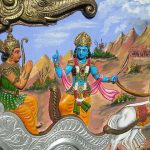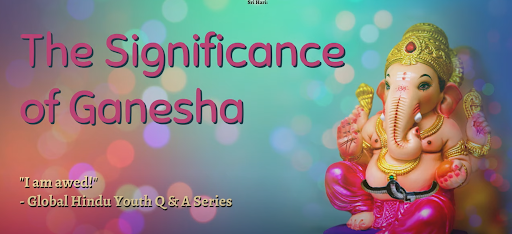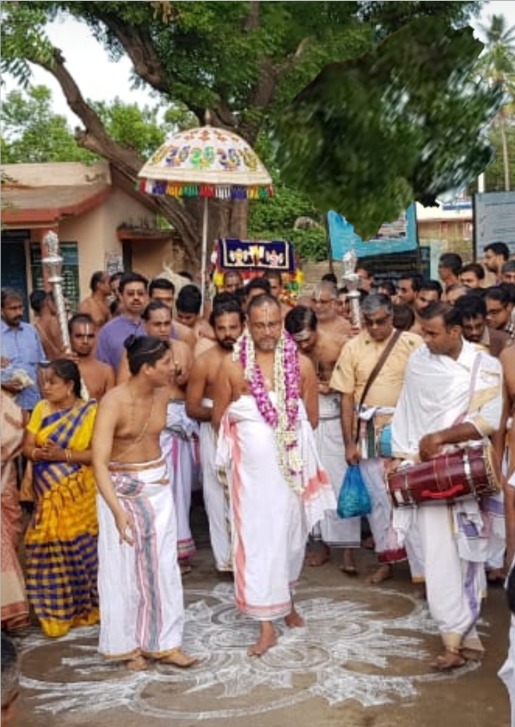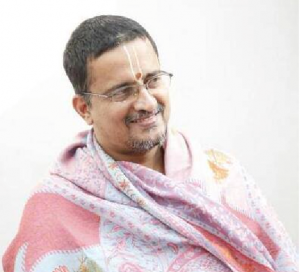The spiritual path of devotion (Bhakti) or self-enquiry (Jnana) is truly exciting and rewarding. In fact, it is the very purpose of our existence here. While each of these paths have been well laid out by great spiritual Masters and our scriptures, there are some fatal traps which a sadhak (spiritual aspirant) should be wary of.
 Just like any other trap, here too, people fall into it inadvertently and suffer. The only difference with traps in the spiritual path is that sadhaks may not even be aware that they are caught in a trap, and could actually mistake it to be spiritual progress! What a wonder!
Just like any other trap, here too, people fall into it inadvertently and suffer. The only difference with traps in the spiritual path is that sadhaks may not even be aware that they are caught in a trap, and could actually mistake it to be spiritual progress! What a wonder!
Shall we together explore such traps so that we can exercise caution while treading the spiritual, divine path?
Trap #1: The Trap of Dangerous Notions
In the path of Bhakti and also in the path of Jnana, listening to stories and experiences of great ones and divine descents is an essential part of the journey. For inspiration, we do listen to the divine plays of Bhagavan and the life histories of mahans (saints) like Sri Ramakrishna Paramahamsa, Sant Meera Bai, Sri Chaitanya Mahaprabhu, Sri Ramana Maharshi and others. So far, this is good.
But the problem arises when we start imagining that we are also like these great ones! The mind can play devious tricks to feed this notion. This is truly dangerous. If we keep feeding this notion, we may land only in hell. Even people around us, wittingly or unwittingly, may encourage or even feed this perilous notion.
The episode of Paundraka Vaasudeva, narrated in Srimad Bhagavatam, who imagined himself to be the real Bhagavan Krishna, gravely reminds us of the consequences of fielding such notions.
(This episode is in the 66th Chapter of the 10th Canto of Srimad Bhagavatam. Paundraka, the ruler of the land of Karusha, had sycophants around him. They fed him with the notion that he was the original avatar of Lord Vaasudeva and that Sri Krishna was the impostor! He had the audacity to send a message to Bhagavan to give up His name and also other insignia, or face him in a battle. Bhagavan heartily agreed to face him in a battle and Paundraka met his end at Bhagavan’s hand.)
In Paundraka’s case, he was luckily vanquished by Bhagavan Himself and so, attained Him; but in the case of a sadhak caught in such misplaced notions, only dark regions may await.
Hence avoid trap #1 – imagination of undergoing divine experiences like that of a great Master or holding a notion that one is like a great mahan. This is a common human defect that we should be very wary of.
Trap #2: The Deadly Trap of Imitation
The story of any saint or sage is a story of great sacrifice, dispassion, purity, love, faith and tremendous suffering. Unfortunately, normal, non-discerning eyes, see only the mahan’s external appearance and not the immense purity, sacrifice and the fire of dispassion that burns within. So there is the trap of imitation of the externalities!
A spiritual aspirant caught in this trap will start imitating the physical appearance and mannerisms of the mahan instead of being inspired by his inner excellence. “Imitation is poison,” said Bhagawan Sri Yogi Ramsuratkumar. When caught in such a trap, a weak-minded sadhak mistakes this imitation for progress in spiritual path. He begins to wear clothes the way his Master does, and holds things in his hands just as his Master does (as in the case of Paundraka who had two artificial ‘arms’ attached to his shoulder in order to hold the discus and conch like Krishna). This is a mere illusion. It will certainly bring about his downfall.
If a sadhak wishes to emulate the ways of his Master, it should be the mahan’s sterling inner qualities of love, compassion, sacrifice, simplicity and purity. Since it is easy to imitate the Master’s physical appearance like long nails, beard, dressing style, etc., misdirected sadhaks copy only this and dig their own spiritual grave.
Let us always remember “Imitation is poison”. Imitation is a sign of mental weakness; imitation is a symptom of spiritual regress and not progress.
Trap #3: Belief that “Spirituality is a Short Journey”
The path of spirituality is not a 100 meters sprint but a full marathon.
The spiritual aspirant needs to be prepared for this long journey; no illusions of quick results should be allowed to infect his mind. We need to remember that we have accumulated so much of karma-baggage over millions of births, and discarding them all cannot happen overnight. A great avatara purusha like Sri Ramakrishna Paramahamsa himself spent 12 long years crying for God and practicing sadhana before attaining total perfection. This leela of Paramahamsa exactly underlines the point that spiritual life is a long journey.
The sadhak should mentally strengthen himself with the dual potion of patience and perseverance. Else, misplaced expectations of quick results will only lead to frustration and other psychological disturbances like anger and helplessness. In extreme cases the aspirant may even be driven to become an atheist due to this psychological imbalance.
Remember it is a long, fulfilling journey. Even if we start with a small step, we need to ensure we progress steadily from strength to strength.
Trap #4: Belief that “Efforts are a Waste”
Every single Divine Name chanted definitely gives its fruit. Every moment spent in divine contemplation takes us closer to God. In the spiritual path, every ounce of sadhana purifies our heart to that extent and reduces our latent tendencies (vasanas) to that extent. Nothing is a waste. We need to realize this to ensure that we do not get frustrated or lose faith.
Loss of faith in the sadhana is the deadliest of all traps. We need to persevere in our sadhana with faith and conviction that its fruit shall certainly come in due course of time. Srimad Bhagavatam gives us a lovely example. When a hungry man starts to eat, he finds that every mouthful of food that is taken appeases his hunger, as well as gives him energy and contentment, to that extent. Hence the final trap of spiritual progress is losing faith in the sadhana, as there may not be a ‘tangible’ result in sight. We should, therefore, be wary of these traps and persist in our spiritual journey.
Sri M. K. Ramanujam ji
Originally published in www.namadwaar.org





